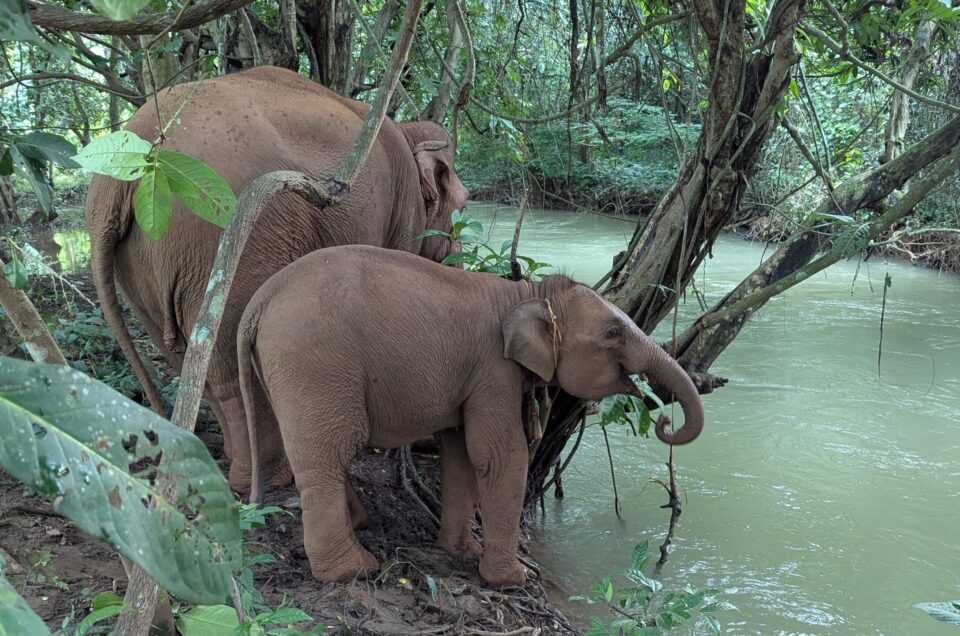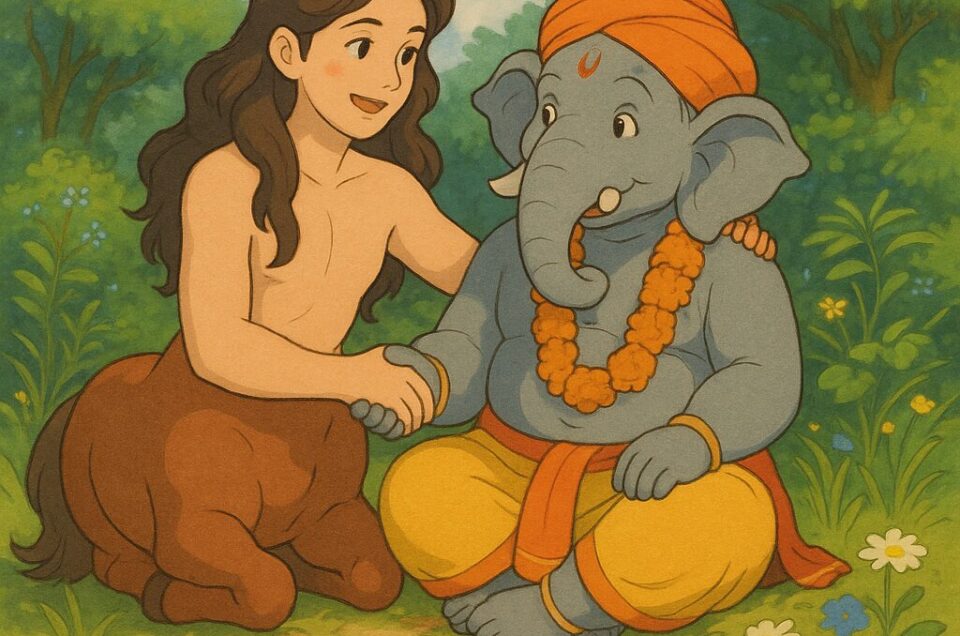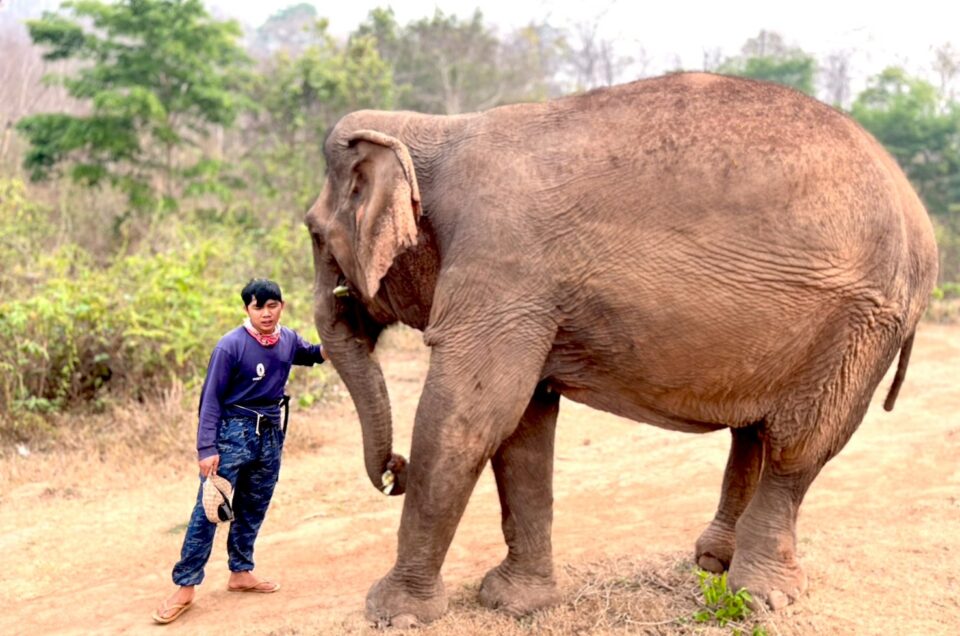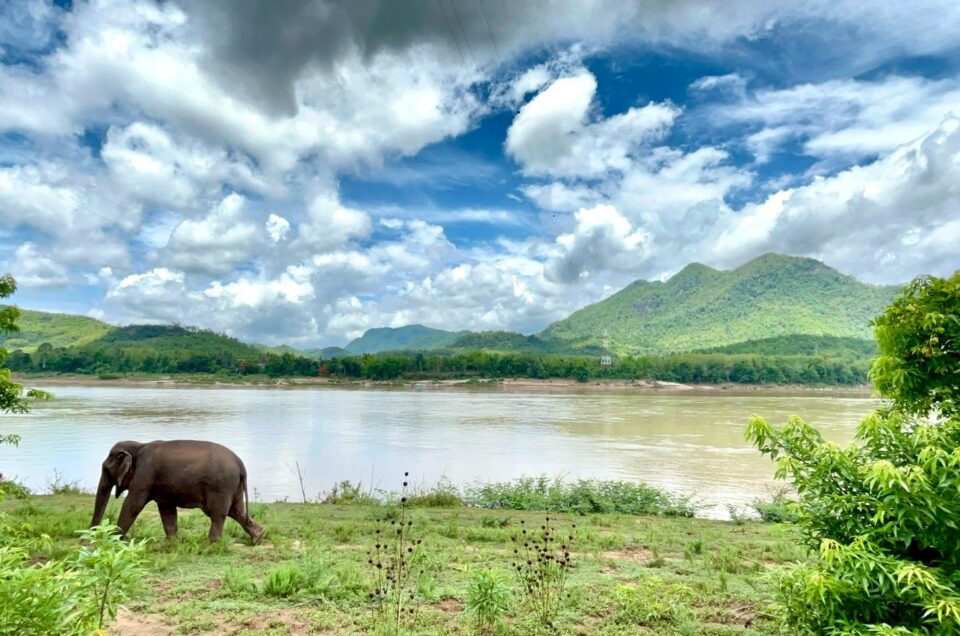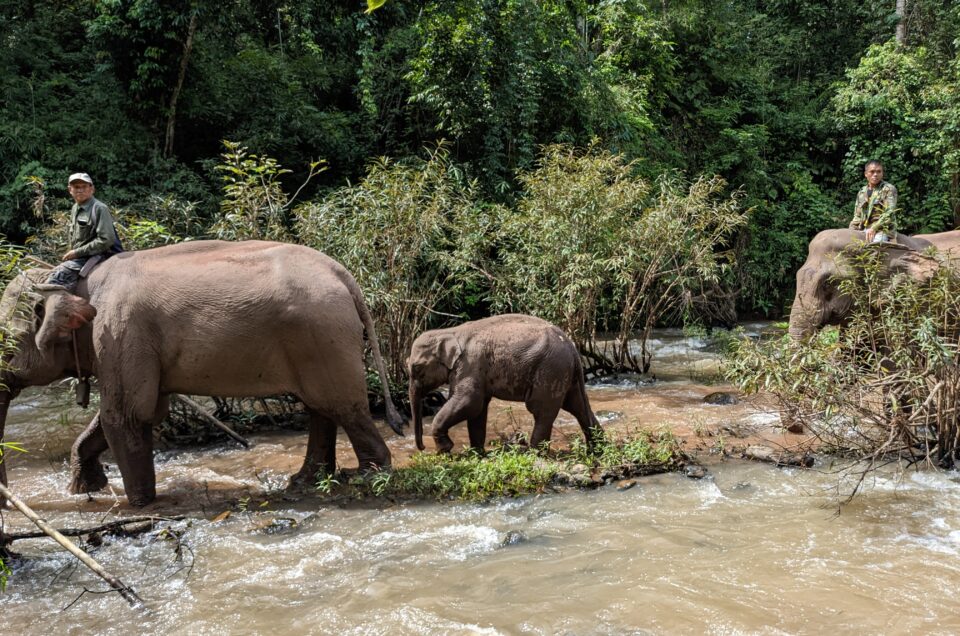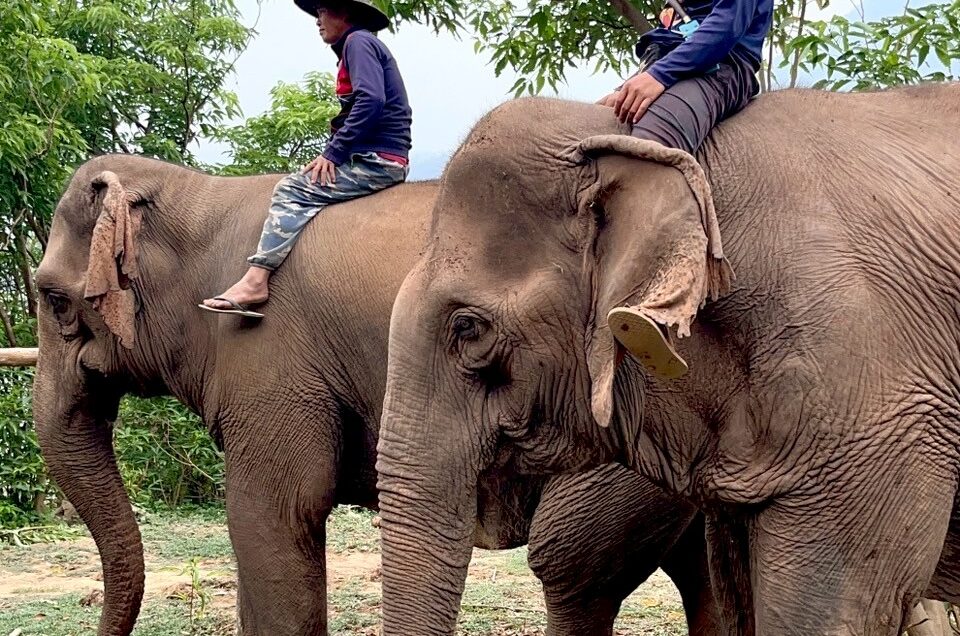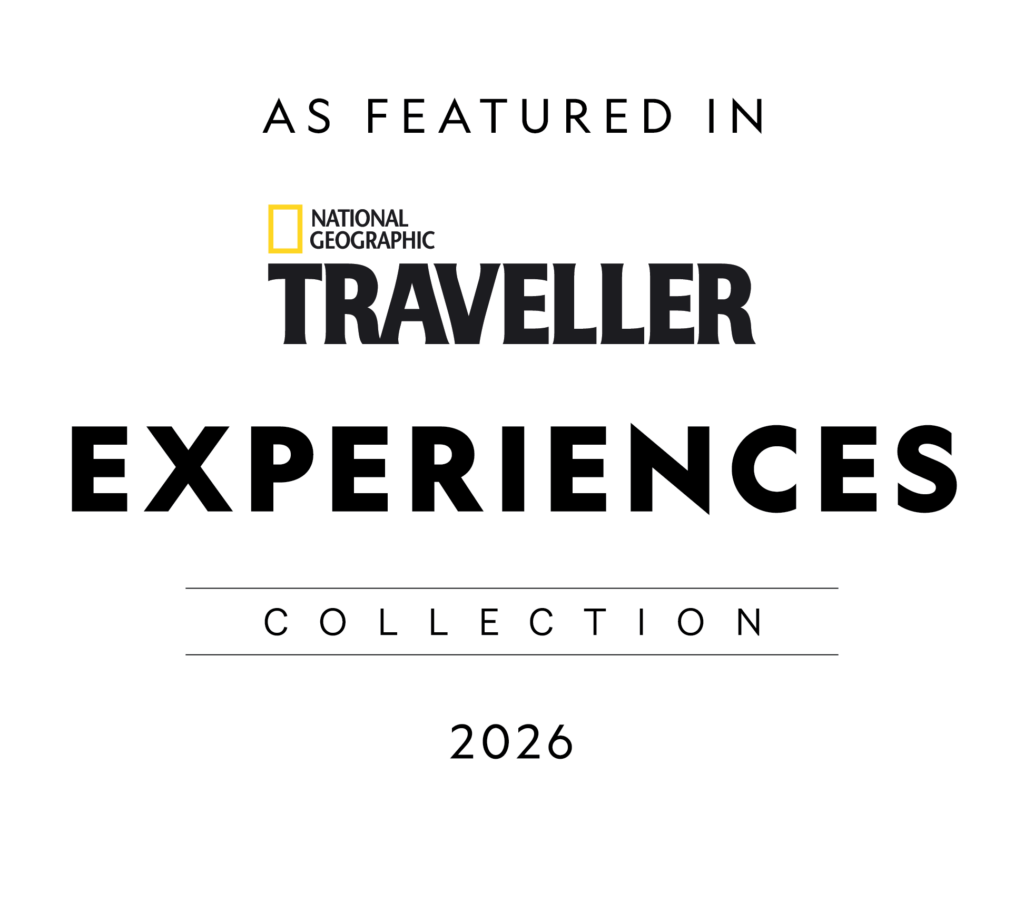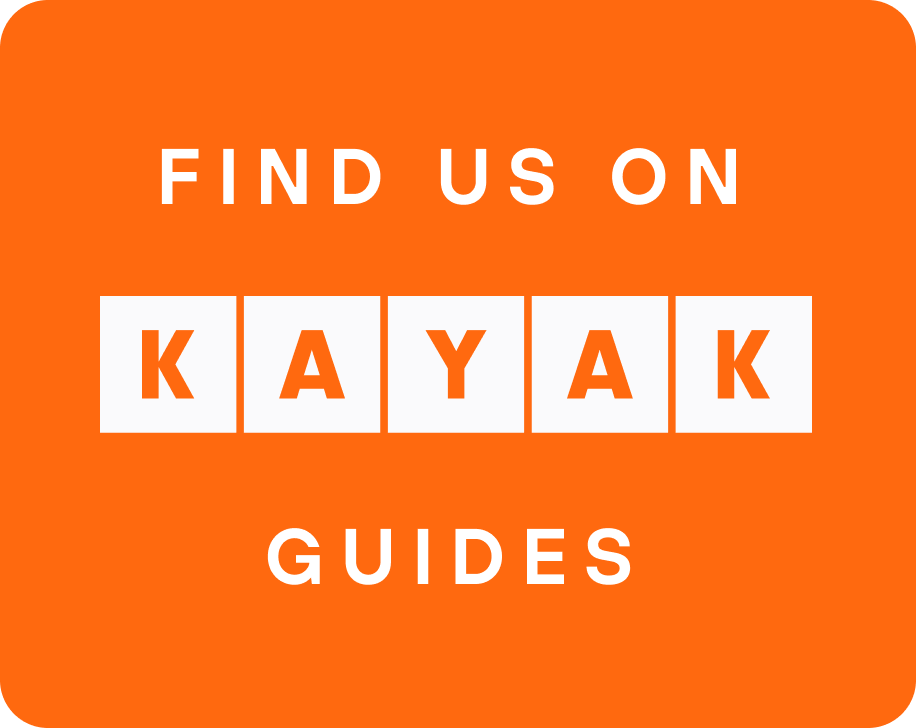Manifa Elephhant Camp
Manifa Elephant Camp offers a rare opportunity to connect with Laos’ cultural heritage and majestic elephants in a natural riverside setting just outside Luang Prabang. Since 2009, it has grown from a small local initiative in Ban Xang Hai village to the largest elephant camp in Luang Prabang, caring for elephants within over 100 hectares of forest.
In 2025, we expanded to Kuang Si Waterfalls, where 16,000 hectares of rich forest and flowing water provide an even more abundant environment for elephants. Just as elephants have traditionally been part of the landscape of villages and surrounding forests in Laos, our new camp continues this long-standing pattern, allowing elephants to live in a landscape that reflects both ecological richness and cultural continuity.
Visitors are invited to join experiences rooted in respect—for elephants, for mahouts, and for the land. Whether walking beside elephants, observing their daily lives, riding gently through the forest, or participating in feeding and bathing, you will discover how people and elephants in Laos can live, learn, and thrive together in places where nature and culture are intertwined.
All tours must be booked prior to departure from Luang Prabang. Please book through this website or our office in Luang Prabang. If you would like to come to the venue by your own vehicle, you can make your reservation here ($30 per person) for half day tour and meet us at 9:30 a.m. We will greatly appreciate if you can book at your earliest convenience.
Our Goal
Manifa Elephant Camp aims to foster a respectful and sustainable relationship between humans and elephants, grounded in traditional Lao practices and local knowledge. We support ethical, welfare-focused experiences that reflect long-standing bonds between elephants and their mahouts. Our goal is to promote conservation through connection by creating meaningful encounters that benefit both elephants and the communities that care for them.

Our Value
Manifa Elephant Camp values ethical coexistence, cultural respect, and environmental sustainability. It upholds traditional relationships between elephants and mahouts while adapting to modern welfare standards. The camp prioritizes the well-being of elephants through responsible care and meaningful human–elephant interactions, offering visitors a deeper understanding of Lao heritage and the shared lives of people and animals.
Manifa Elephant Camp Visitor Packages
Core Packages
- Full-Day Amazing Elephant Mahout Experience
- EUR42per person
- One-Day Elephant Mahout Experience
- Mekong Sunset Cruise back to Luang Prabang
- 8:30-18:00
- Lunch / Pick-Up / Drop-Off
- Half-Day Glimpse Elephant Mahout Experience
- EUR31per person
- Half-Day Elephant Mahout Experience
- Can come by yourself (no transportation)
- 8:30-14:00
- Lunch / Pick-Up / Drop-Off
- Full-Day Kuang Si Falls, Elephant Walk & Mekong Sunset Cruise
- EUR35per person
- Elephant encounter in the vast forest at the top of Kuang Si Falls
- Kuang Si Waterfalls / Trekking from the waterfall to the rice paddies / sunset cruise
- 8:30-18:30
- Lunch / pick-up / drop-off
Manifa Elephant Camp's 6 Key Concepts
Combination Packages
Combine a half-day elephant experience with other packages offered by Manifa Travel
- Full-Day Kuang Si Falls, Elephant Walk & Mekong Sunset Cruise
- EUR35per person
- Elephant encounter in the vast forest at the top of Kuang Si Falls
- Kuang Si Waterfalls / Trekking from the waterfall to the rice paddies / sunset cruise
- 8:30-18:30
- Lunch / pick-up / drop-off
- Full-Day Glimpse + Pak Ou Caves, Mekong Sunset Cruise
- EUR42per person
- Half-Day Elephant Mahout Experience
- Pak Ou Caves / Mekong Sunset Cruise
- 8:30-18:00
- Lunch / pick-up / drop-off
- Full-Day Glimpse + Kayak, Mekong Sunset Cruise
- EUR42per person
- Half-Day Elephant Mahout Experience
- Kayak to Pak Ou Caves / Mekong Cruise
- 8:30-18:00
- Lunch / pick-up / drop-off
Find more combination packages with adventure activities
Multi-day package including cottage accommodation stay
- 2-Day Memorable Overnight Experience
- EUR117per person
- 2-Day Elephant Mahout Experience
- Customizable Adventure Activities
- Cottage Accommodation
- All Meals / Pick-Up / Drop-Off
- 3-Day Immersion Overnight Experience
- EUR173per person
- 3-Day Elephant Mahout Experience
- Customizable Adventure Activities
- Cottage Accommodation
- All Meals / Pick-Up / Drop-Off
- 1-Day Elephant Mahout & Overnight Experience
- EUR80per person
- 1-Day Elephant Mahout Experience
- Customizable Adventure Activities
- Cottage Accommodation
- All Meals / Pick-Up / Drop-Off
Family Elephant Packages
Packages for families with children. Two adults and two children share two elephants to keep the price low.
- 2-Day Family Overnight Experience
- EUR299per family
- Elephant Mahout Experience
- Customizable Adventure Activities / Mekong River Cruise
- Package for 2 Adults and 2 Children (sharing 2 elephants)
- Cottage Accommodation
- All Meals / Pick-Up / Drop-Off
- 3-Day Family Overnight Experience
- EUR442per family
- Elephant Mahout Experience
- Customizable Adventure Activities / Mekong River Cruise
- Package for 2 Adults and 2 Children (sharing 2 elephants)
- Cottage Accommodation
- All Meals / Pick-Up / Drop-Off
Elephant FAQs
These FAQs were developed by Manifa Elephant Camp, based on the original Elephant FAQs created in 2017–2018 for tourism in Luang Prabang. That earlier initiative was part of an EU-funded project implemented by the German Agency for International Cooperation (GIZ), with support from relevant Lao and ASEAN institutions and tourism associations. The original FAQs reflected the perspectives of animal welfare experts working in elephant tourism across Southeast Asia, and were intended as a response to anti-elephant tourism campaigns led by organizations such as World Animal Protection (WAP).
Manifa Elephant Camp has long published those FAQs as helpful resources for promoting a more informed understanding of elephant tourism. However, we have now undertaken an independent revision to better reflect current research, ethical debates, and local perspectives. We believe our updated FAQs offer a more balanced, culturally respectful, and critically informed approach to the complex ethics of elephant tourism. Our hope is that this resource helps you, as a thoughtful visitor, reflect on what it means to support elephant tourism responsibly.
In this updated version, we have:
-
Corrected the original bias toward Western-centric animal welfare frameworks
-
Included responses from the perspective of animal rights activists—whose views were largely excluded or opposed in the original FAQs
-
Added insight from Lao communities and mahouts, whose voices and relationships with elephants are often overlooked in global debates
- Although this is a fictional roundtable generated by AI, we have not neglected to check its authenticity.
The ethics of elephant tourism from Donna Haraway’s perspective
American feminist and philosopher Donna Haraway‘s theory of animals has had a significant impact on humanistic approaches to animals and the environment. Her work challenges traditional human-centered views and promotes a more relational and interspecies understanding of the world. The following article reviews interdisciplinary research on elephants in Laos and Southeast Asia based on key concepts raised by Haraway and provides a coherent discussion of ethical elephant tourism.




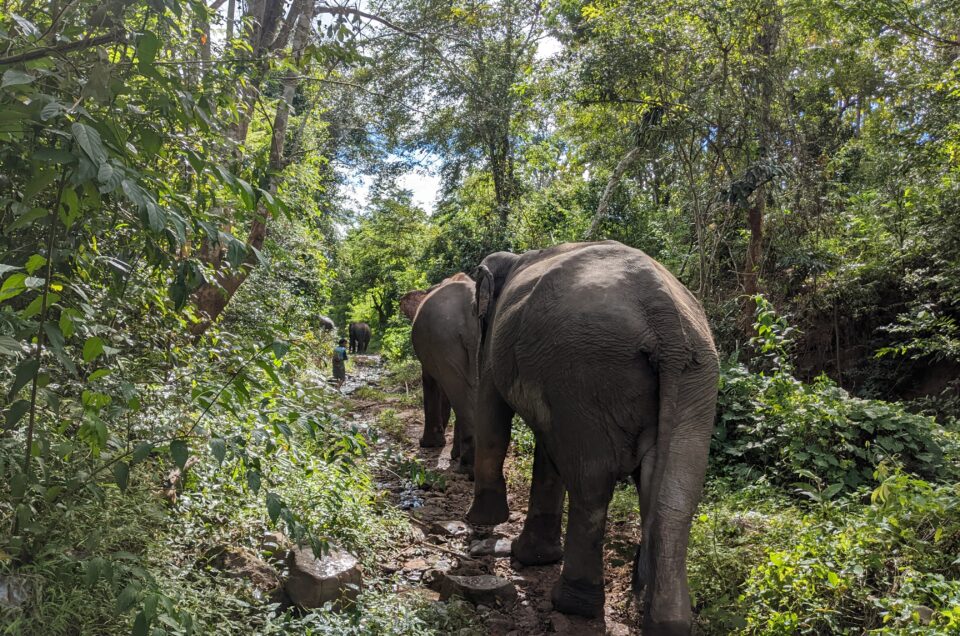
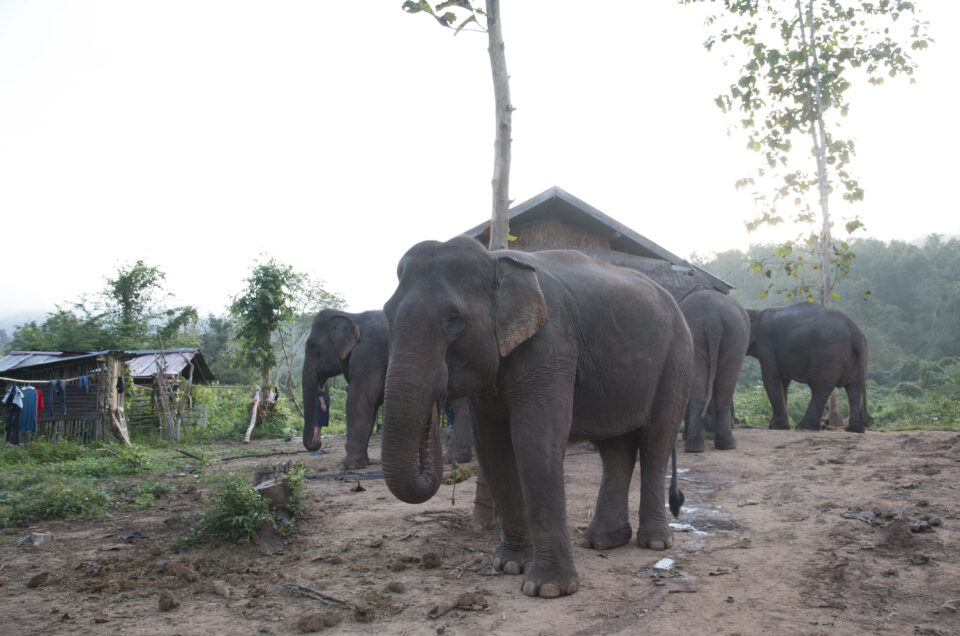
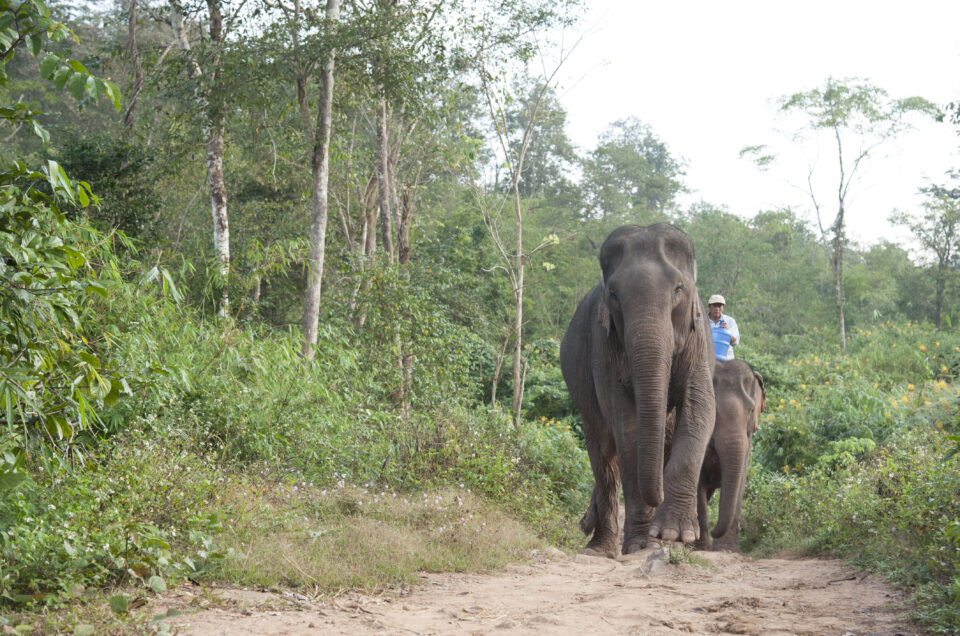
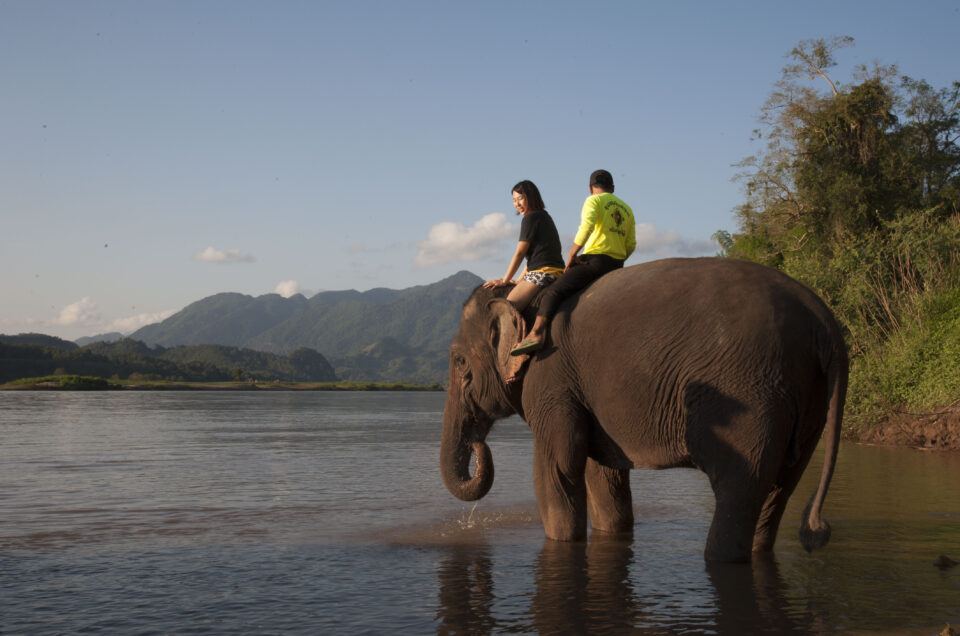
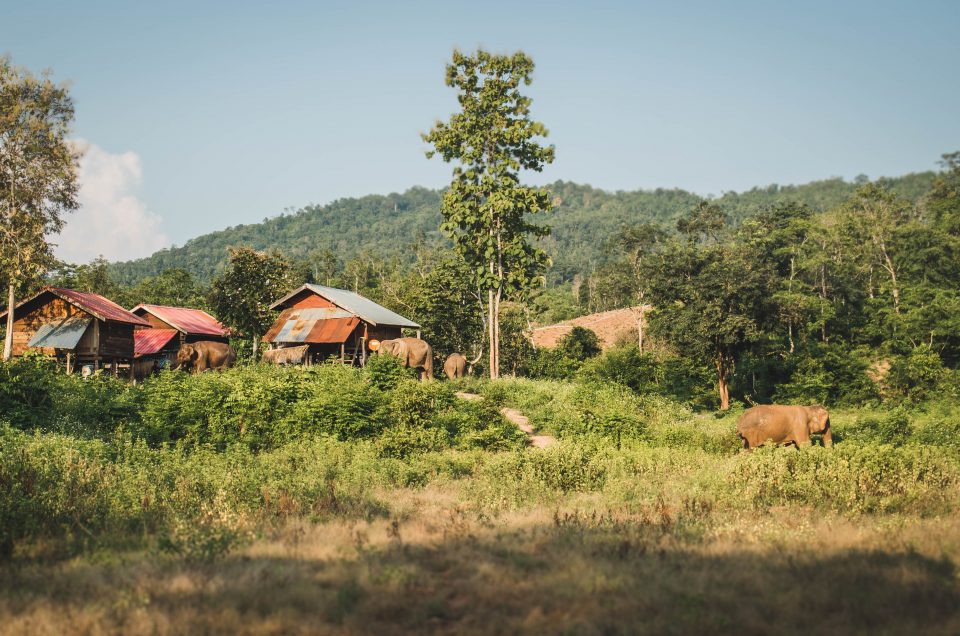
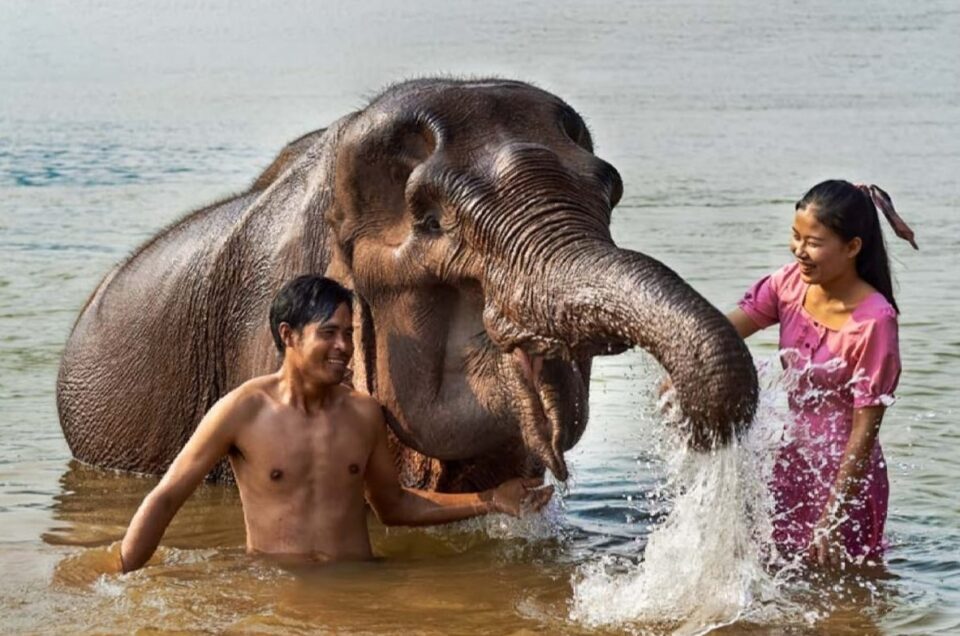
![[1] Q: Are Elephants in Tourism Wild or Domesticated?](https://manifatravel.com/wp-content/uploads/2023/03/elephant-vet4-780x636.jpg)
![[2] Q: Is elephant riding harmful?](https://manifatravel.com/wp-content/uploads/2021/10/IMG_5363-960x636.jpg)
![[3] Q: Is it ethical to chain elephants?](https://manifatravel.com/wp-content/uploads/2025/05/PXL_20220901_040409503.MP_-960x636.jpg)
![[4] Q: Is it important to use a hook with elephants?](https://manifatravel.com/wp-content/uploads/2025/05/PXL_20220901_024820365-960x636.jpg)
![[5] Q: How are elephants trained to interact with humans?](https://manifatravel.com/wp-content/uploads/2022/07/h-elp-luang-prabang-workshop-960x636.jpg)
![[6] Q: Should elephants working in camps be reintroduced into the wild?](https://manifatravel.com/wp-content/uploads/2025/05/PXL_20220901_030520392-960x636.jpg)
![[7] Q: Are elephants working for people eligible for rescue and conservation?](https://manifatravel.com/wp-content/uploads/2023/05/DSC_5581-960x636.jpg)
![[8] Q: Should all activities involving interactions with elephants be banned or boycotted?](https://manifatravel.com/wp-content/uploads/2022/10/mahout-village-960x636.jpeg)
